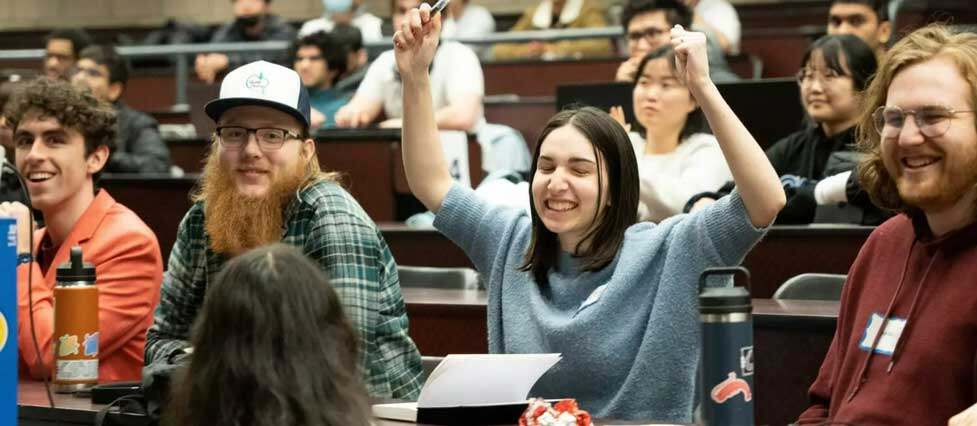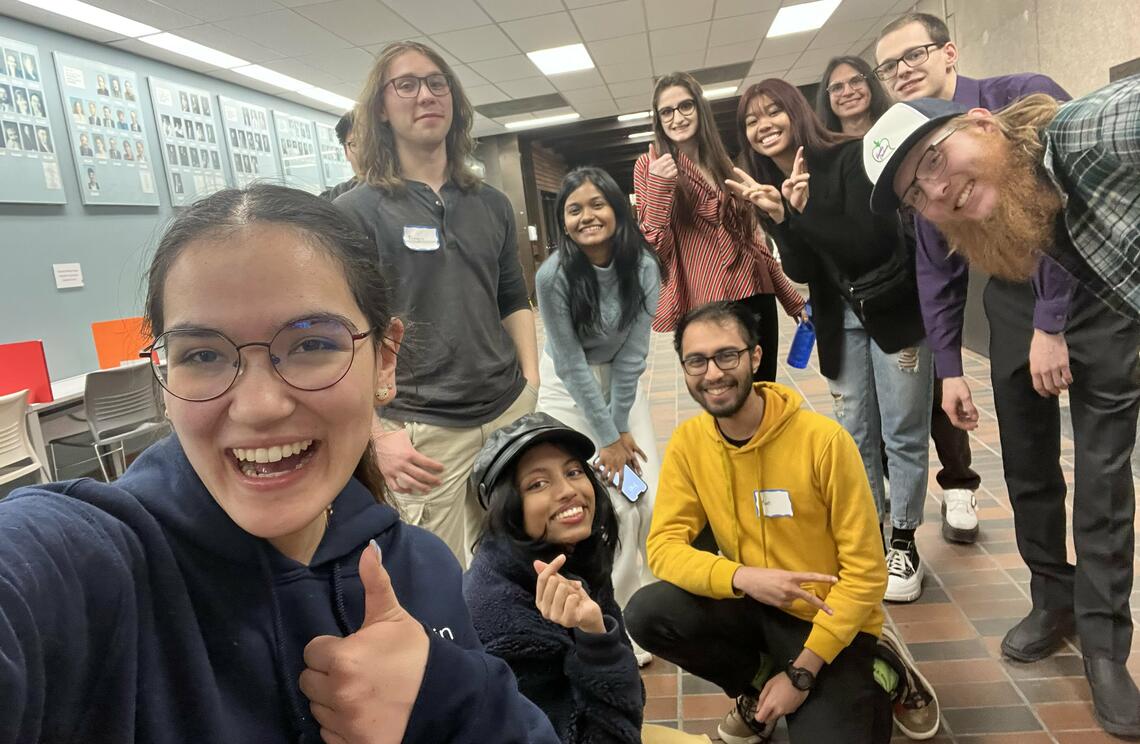Can you remember the last time you pulled an all-nighter?
For some, it was just a few months ago during exam period. For others, it might be years or decades in the past and those bleary-eyed, adrenaline- and caffeine-filled moments at 3 a.m. are a distant memory.


Next month, on Feb. 17 and 18, hundreds of high school and university students will be willingly sacrificing a night’s rest to participate in the ninth annual CalgaryHacks, a sprint-style, competitive programming contest hosted by UCalgary’s Computer Science Undergraduate Society (CSUS).
During the 24 hours, teams of students will work to develop an innovative solution to a specific problem announced at the start of the competition. Students can either form teams at CalgaryHacks or arrive at the event with a group of five or fewer. Participants have creative control over how they address the problem and submissions can be anything from a live website to a proof-of-concept. Once time is up, a panel of academic and industry professionals will choose the winner based on innovation, execution, how accurately the problem is tackled, and effectiveness of the solution.
Less time for a better product
Twenty-four hours isn’t a lot of time. For most of us, we wake up, go to school or work, come home, eat dinner and before we know it, the day is done.
Yet, it’s no secret that having more time doesn’t always mean more productivity or a better end product.
David Garcia Orozco, vice-president academic of CSUS, says the time constraint of CalgaryHacks can help students finish a successful project.
“When you get into bigger projects, you can get scope creep and never really have something to show, but because it’s 24 hours, everything that gets done is always laser focused on the topic that is given,” he says.
Tahamina Chowdhury, president of CSUS, agrees: “When you’re in a hackathon, you’re forced to do a project that might take you one month and do it in 24 hours .You would be surprised all you can get done in that tight time frame.”
Ingredients for successful hackathon
Not all teams participating in CalgaryHacks submit a final project. Sometimes a team’s ideas don’t click, or the scope of the idea is just too big for a sprint hackathon. Yet, even if a team doesn’t finish, Chowdhury and Garcia Orozco stress there are many benefits of going through the process of participating.
“It’s really about teamwork,” says Chowdhury. “It’s not just you that’s giving your all, but you’re collaborating with others to come up with the same idea. If the whole group is not on the same page, sometimes you get the feeling of the world crashing down. Everyone is not always successful, but the journey itself helps build up communication, leadership and collaboration skills.”
For those who are successful in delivering a final product to the judges, what makes a project click?
Chowdhury and Garcia Orozco say it’s a combination of getting to know your teammates, dividing up tasks according to skill sets and perhaps most important, developing a concise, innovative idea to work with.
“You need to boil the process down to address the specific problem instead of being distracted by all the bells and whistles,” says Garcia Orozco.
Navigating campus through quests
Last year’s CalgaryHacks problem asked participants to address the challenge of coming back to campus after the COVID pandemic. Participants were asked to come up with a solution to improve the campus experience for university students.
The winning team, which was made up of three UCalgary students and one student from the University of Alberta, developed an app called UniQuest. By using QR codes and a process of gamification, students would be able to navigate to a variety of campus services and learn more about what they offer. The team knew that many university students weren’t aware about all the resources their campuses offer. These quests to new locations and buildings resulted in the accumulation of points, which then could be translated into prizes like free access to recreation areas or free printing.
“After years of online experience, students came back to university and found it super big and hard to navigate,” says Chowdhury. “UniQuest was all about encouraging people to get to know their university more deeply. The idea for the app itself was pretty great, and so was the implementation.”
What you get depends on who you are
Whether a student is part of a winning team or not, CalgaryHacks will give them life skills and experience needed to thrive after university. Many participants will walk away with a new project to highlight on their resume, alongside stronger technological and social skills.
“What you’re getting out of the hackathon depends on who you are,” says Garcia Orozco. “If you’re someone who has participated in a lot of hackathons, you might be going in trying to win. Other people might be more interested in getting that technical experience and learning how to work together, while others might be looking for internships, so the main appeal for them is networking with professors and judges.”
For Chowdhury and Garcia Orozco, participating in different hackathons over the years allowed them to realize just how passionate they were about programming. They want to build a legacy for CalgaryHacks and give that same experience to as many students as they can.
“I want CalgaryHacks to be the best, not just in Alberta but the whole country,” says Chowdhury.
As for sacrificing an entire night’s sleep? Garcia Orozco explains that some participants do manage to squeeze in a few minutes of beauty rest amidst the flurry of creating an entirely original product in 24 hours.
“If they do sleep, it’s even more impressive when they finish and submit their projects,” Garcia Orozco says.


Computer Science Undergraduate Society



































